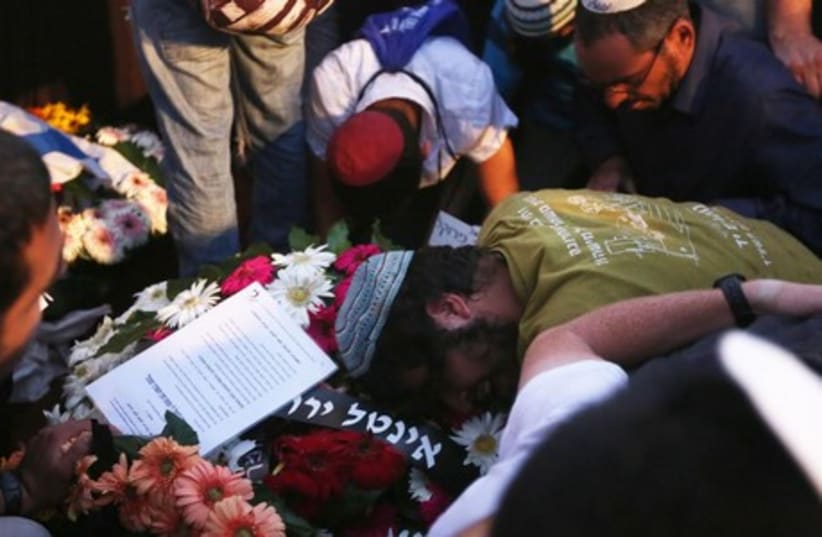
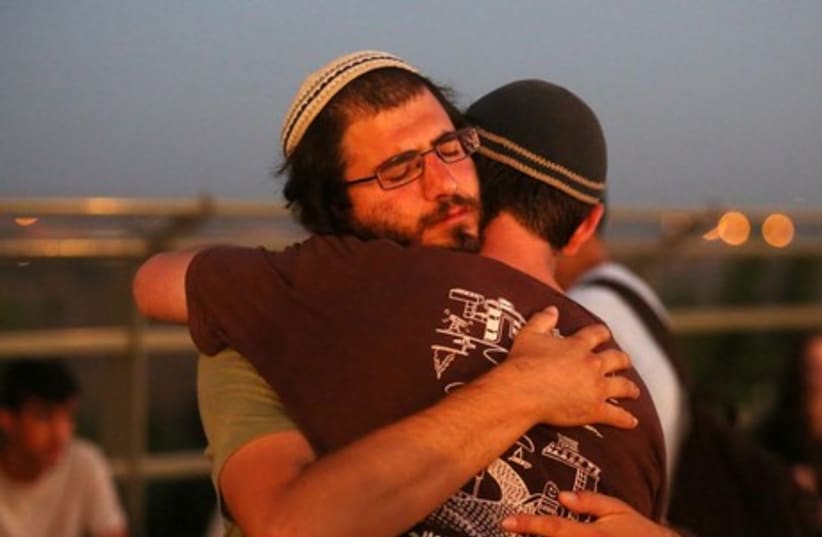
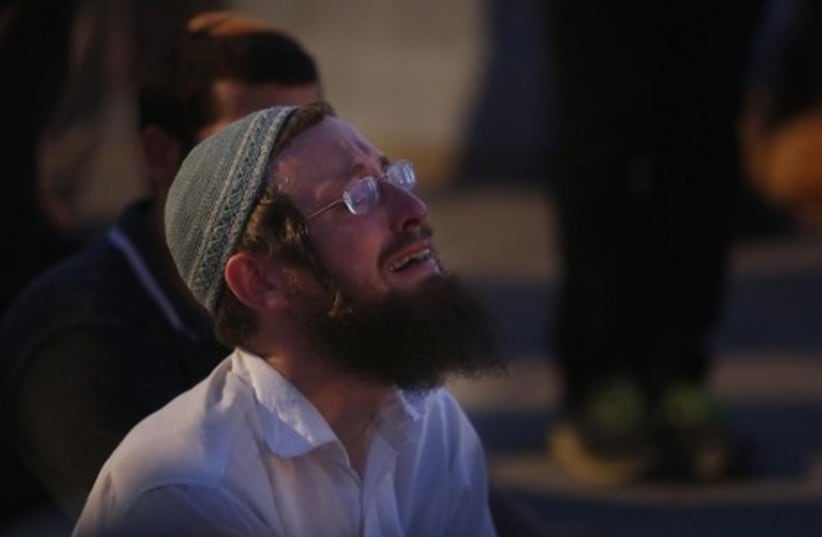
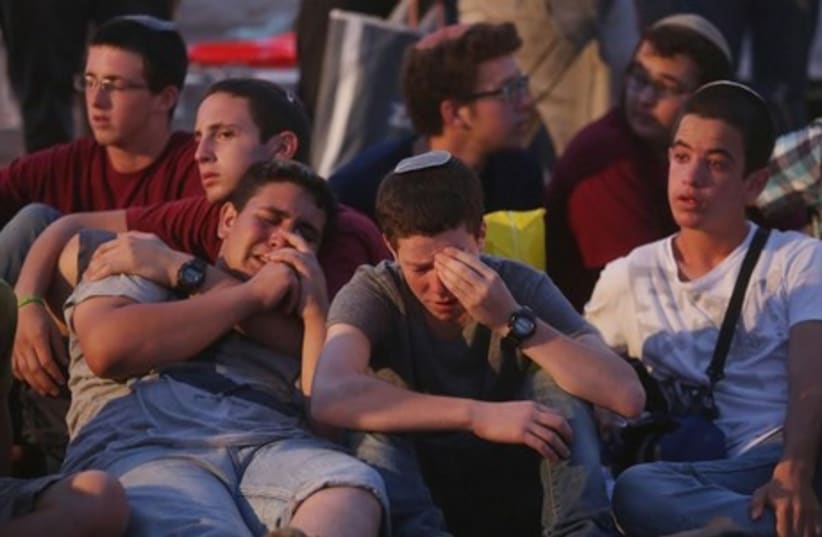
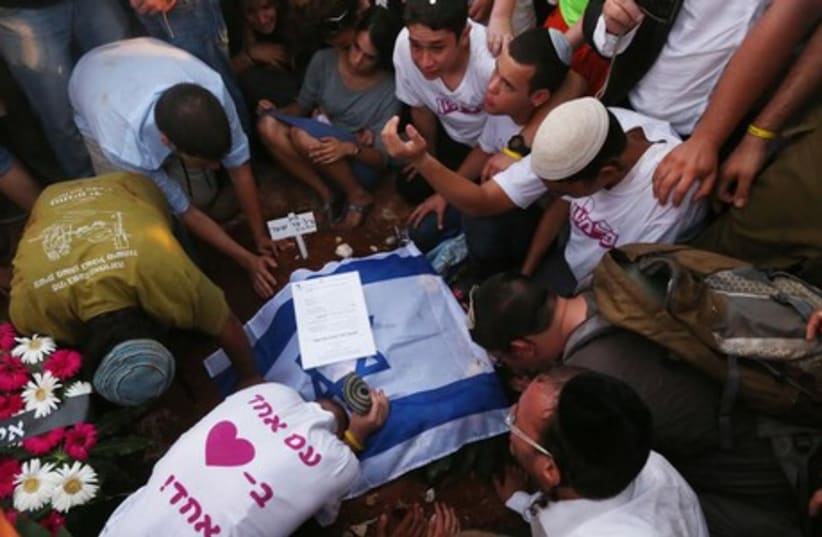
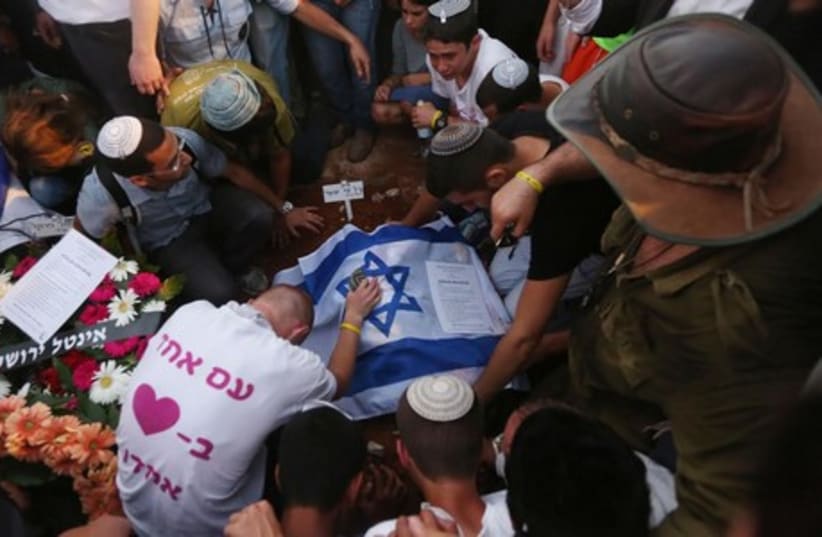
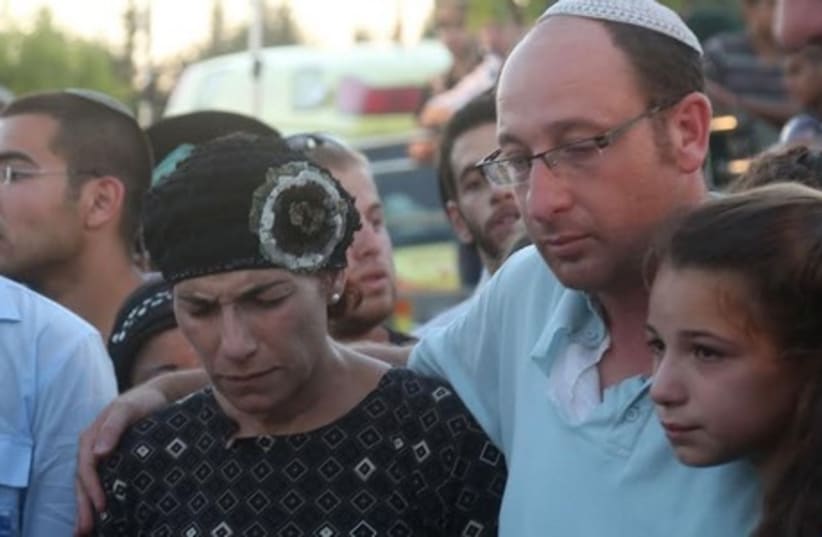
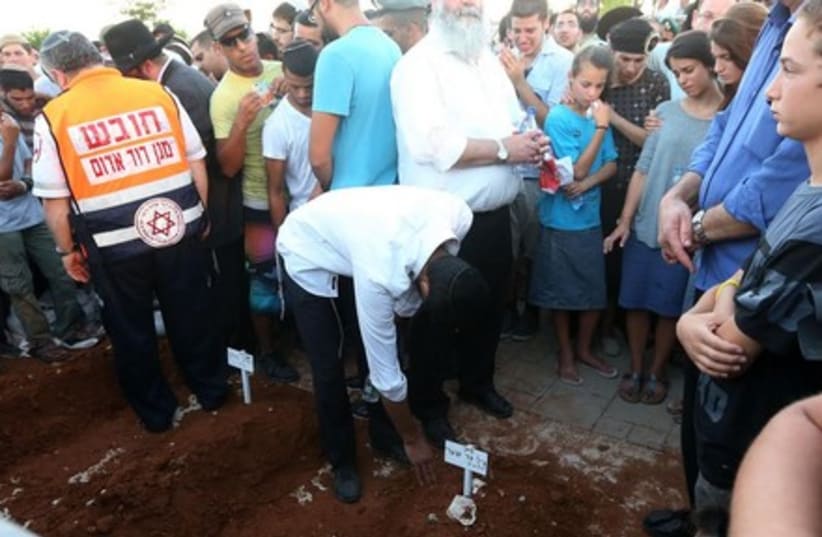
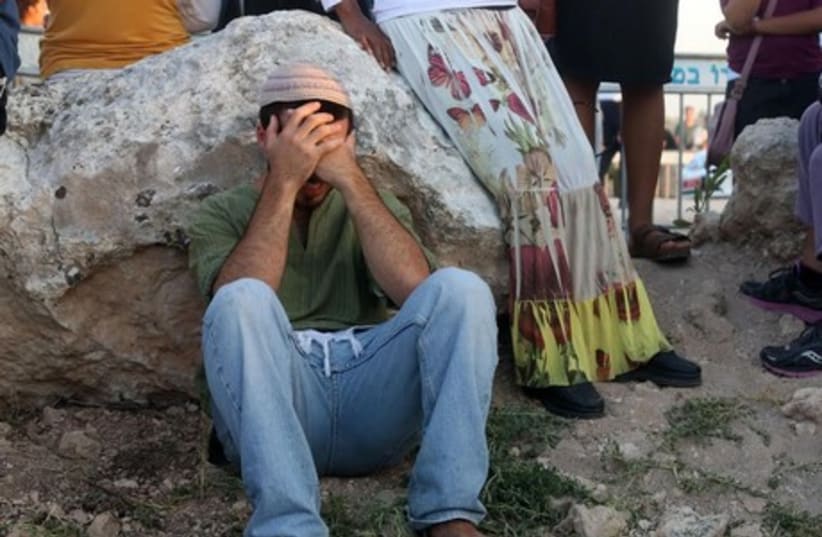

Speaking at the funeral, Prime Minister Binyamin Netanyahu looked directly at the three women – Rachel Fraenkel, Bat-Galim Shaer and Iris Yifrah.“You taught the whole world what a mother’s cry is and what a mother’s love is,” he said. “Blessed are the boys of such parents and families, and how terrible it is that fate has separated you from them through an evil that is incomprehensible.”As he spoke, the flag-draped bodies of Naftali Fraenkel, 16, Gil-Ad Shaer,16, and Eyal Yifrah, 19, lay side-by-side in front of the television cameras and thousands of mourners.The mass funeral marked the end of an 18-day ordeal, in which the three yeshiva students became national symbols after they were abducted by Hamas operatives from a hitchhiking post in the West Bank’s Gush Etzion region on their way home from school for Shabbat.For two weeks, Israelis were riveted by the fate of the teens. The nation rallied around the family with mass prayer services at the Western Wall and a rally in Rabin Square in Tel Aviv.Photographs of the three teens were posted on bus stops and hung off balconies and on street corners throughout the country.“Over the last 18 days, the images of Eyal, Gil-Ad and Naftali captured the heart of the entire nation,” Netanyahu said. “Israeli citizens learned to recognize their faces, even if, to our sorrow, we did not get to meet them, as we hoped and dreamed. We were charmed by their smiles, their kindness and their youthful joy.”The parents of the teens banded together to speak to the nation, but it was the mothers who had captured its heart, traveling as far as Geneva to ask the United Nations Human Rights Council for help, Netanyahu said.When news broke that the boys’ bodies had been found under a pile of rocks outside Hebron, just a short distance from where they had been kidnapped, people took to the streets and held candle-lit vigils.“This day has spontaneously become a national day of mourning,” Netanyahu said.The nation, he said, was struck by the nobility and the inner strength of the three families as they waited for news of their children.From these families, he went on, “we have learned a lesson that won’t be forgotten, of faith and determination, of unity and sensitivity, of Judaism and humanity.”He declared that “an entire nation banded together and was reminded of who we are and why we are here.”Netanyahu said that he knew from personal experience that a nation’s embrace could not erase the grief of losing a loved one. But life, he said, is like a river that sweeps people forward.“The nation that cried with you and embraced you will continue to accompany you,” the prime minister said.Outgoing President Shimon Peres said that he, like the rest of the nation, had been “sick with worry” for 18 days and nights.“We prayed, each of us alone and all of us together, for a miracle. We prayed that we would see them return in peace to their families, to their homes and to us all.Sadly we were hit by the tragedy of their murder, and a deep grief enveloped our people,” Peres said.To the mothers of the three teens, he said, “Your voices united a nation and educated a generation. You, the mothers and fathers, raised children that Israel can be proud of. You inspired in them a love of their people. A love of Torah and a love of the land. You instilled in them devotion and a love of mankind.”In the last few weeks, he continued, “you turned your grief into a source of hope for the whole nation.”These three teens whose snapshots had flashed across the national stage “showed the face of our people with a bright and painful light, our unity and its morality,” he said, adding that he was certain the IDF would find and punish the kidnappers.“Israel will act with a firm hand until terror is uprooted. To those who celebrate our suffering, I say that terrorism aimed at us hurts those who dispatch it,” he declared.Rabbi Dov Zinger, the head of the Makor Chaim Yeshiva, which the boys attended, opened the eulogies by saying that the ordeal had shown the nation that it could overcome divisiveness to unite as a people.“We have one heart. Let’s not return to normal. Lets us take on the obligation of loving the other as yourself,” Zinger said.